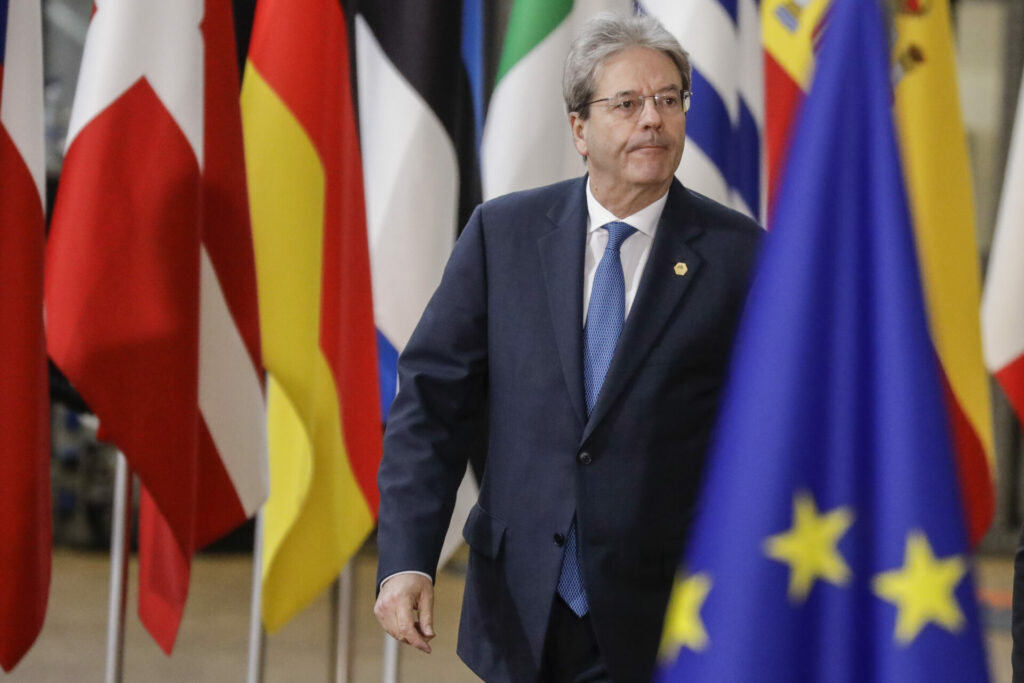The European Commissioner for the Economy, Paolo Gentiloni, has warned of the "danger" of political actors campaigning to delay climate action in the run up to the European elections, adding that it would be a "mistake" for the EU to backtrack on its green transition plans.
Speaking in Brussels on Thursday at the European Commission’s annual economic forum, Commissioner Gentiloni said that as there is limited scope for election debate at a European level, there are "fragmented" discussions happening at a national level about the EU’s Green Deal, which outlines the EU’s climate targets and ambitions to 2050.
He said he believes the green transition is not being discussed seriously in national election debates, and that certain political actors are using grievances of citizens in certain regions or sectors to attempt to push back green transition plans entirely.
"We are hearing voices on the green transition that are only the voices of those that are using the difficulties, which of course we all recognise, the sectorial or regional difficulties, to push back the situation," he said.
He highlighted recent protests by farmers over their issues with certain climate policies, noting that they were presented in a "unilateral way" by some political decision makers as farmers being opposed to the entire Green Deal.
"I think governments that are aware of these targets, activists, trade unions, we should unite our forces in these weeks to send a clear message, to the effect that yes, we have to manage difficulties and social problems, but we cannot backtrack from the green transition," he said.
"I think this is a danger, 20 days from the elections, and we are still in time to fight against this danger," Gentiloni, who is a member of the Italian Democratic Party, added.
In contrast to a green wave in 2019 when EU voters made their climate concerns known, it is anticipated that June’s European elections will see a shift to the right, and the EU’s green transition may take a back seat to issues such as industry and competitiveness, security, and migration.
The conservative European People’s Party (EPP) has already voiced its opposition to a number of green regulations, including proposals on nature restoration and reducing the use of chemical pesticides.
The EPP has said it wants to present itself as “the voice and defender of European farmers and rural communities”, arguing that the proposals threatened the viability of farming businesses.
Separately, Belgium has listed industrial competitiveness as a key priority during its rotating Presidency of the Council of the EU.
During an address to the European Parliament in January, Belgian Prime Minister Alexander De Croo (of the centre-right Flemish party Open VLD) outlined the country's plan to make climate policy more favourable to industry.
"The climate policies of China and the US contain an abundance of carrots for their industry," he told MEPs in Strasbourg. "While we, here in Europe, all too often we grab for the stick."

